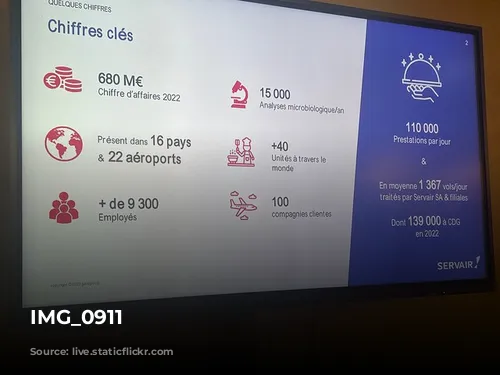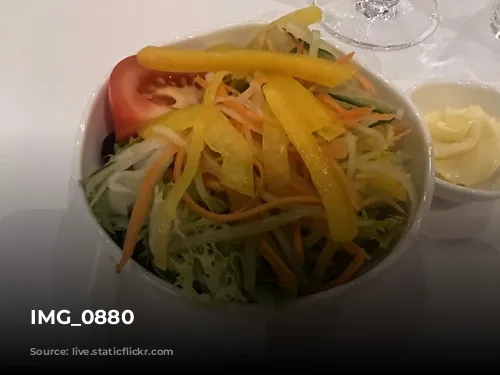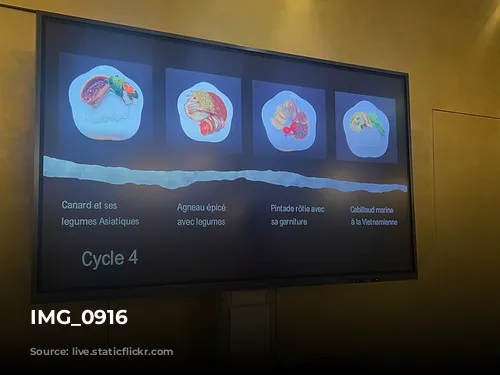A taste of the sky. Vietnam Airlines recently hosted an exclusive event showcasing their business class catering, giving us a unique opportunity to delve into the fascinating world of airline catering alongside Servair’s expert staff.
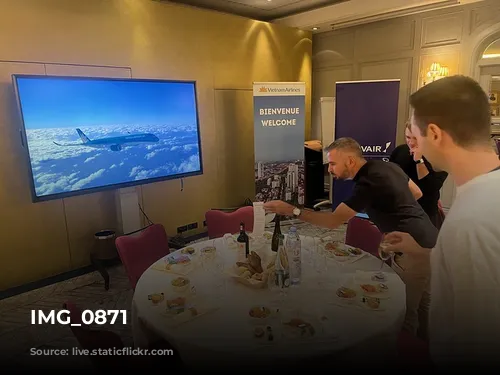
A Taste of Business Class on the Ground
We found ourselves at the elegant Hotel M Social in Paris, surrounded by fellow guests eager to experience the long-haul business class menu. While the idea of writing an article on a ground-based simulation of an in-flight meal initially seemed daunting, the engaging discussion with Vietnam Airlines and Servair representatives quickly shed light on the intricate world of airline catering and the meticulous work that goes on behind the scenes.

A Culinary Journey: From Inspiration to Plate
The menu for the event was inspired by the current business class offerings on Vietnam Airlines flights. While the in-flight menu boasts a choice of four main courses, a luxury not always offered by other airlines, the ground-based event presented a more limited selection due to logistical constraints. Nevertheless, the featured dishes, including succulent Charlemagne beef tournedos with a creamy port wine sauce and delicately prepared scallops in a spicy imperial sauce, promised a delectable experience.
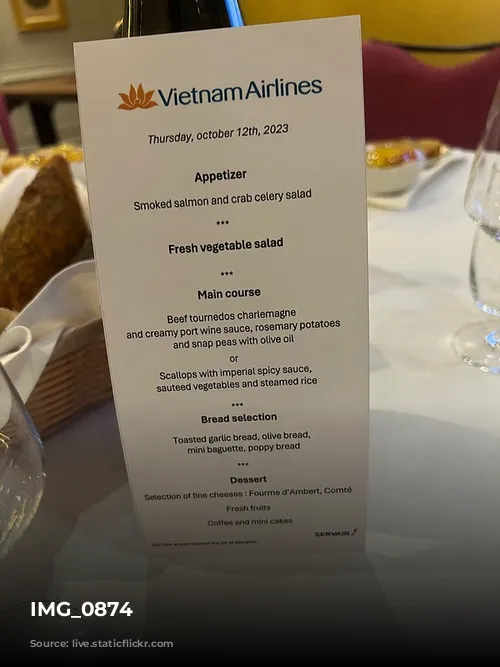
The Art of Airline Catering: A Two-School Approach
The presentation of the dishes highlighted a key difference in the approach to business class service: casserole-style delivery versus plated service. While many airlines opt for reheated casserole dishes, Vietnam Airlines takes a more sophisticated route, shipping individual ingredients separately for reheating and plating by the cabin crew. This meticulous process, guided by a step-by-step manual and a photograph of the finished dish, results in a visually stunning presentation. While requiring greater effort from the staff, this approach delivers a superior dining experience, a sentiment echoed by the Travelguys team.
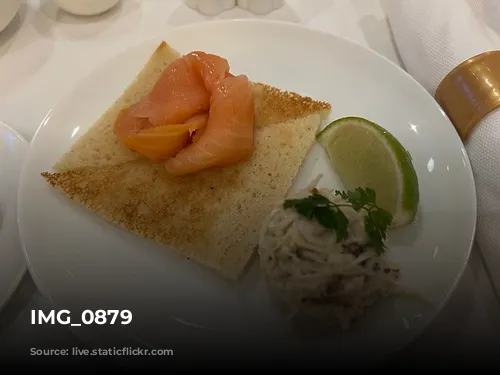
The Essence of Service: A Demonstration of Precision
The event featured a captivating demonstration by a Servair chef, illustrating the flight attendants’ meticulous plating process in the galley. Despite the limited space and time constraints (approximately one minute per dish), the demonstration showcased precise movements and efficient organization, ensuring the delivery of beautiful and professionally plated dishes.
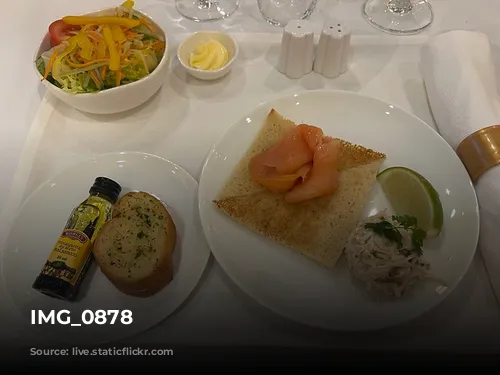
Beyond Business Class: A Commitment to Freshness
While the focus of the event was on business class catering, the discussion also touched upon the airline’s commitment to serving only fresh food in economy class. This commitment, shared by a select few airlines, sets Vietnam Airlines apart in an industry often dominated by frozen, reheated meals.

Dining in the Sky: A Symphony of Flavors and Details
The meal itself was a testament to the airline’s dedication to quality and detail. From the real salt and pepper shakers and butter served in a dish, a departure from the plastic containers and aluminum tubs found elsewhere, to the visually stunning and flavorful salad, each element showcased an attention to detail that elevates the dining experience.

A Taste Test: Scallops in Flight
The main course, the scallops in a spicy imperial sauce, was a highlight. The scallops were perfectly cooked, the rice perfectly steamed, and the sauce, while perhaps a touch too spicy and salty on the ground, was designed to balance out the altered taste perception at altitude.
Beyond the Meal: Insights from Servair
The event provided a unique opportunity to engage in a lively and informative discussion with Servair representatives. This informal conversation yielded valuable insights into the world of airline catering, revealing a fascinating behind-the-scenes glimpse of the logistics, challenges, and dedication that go into delivering a seamless dining experience at 36,000 feet.
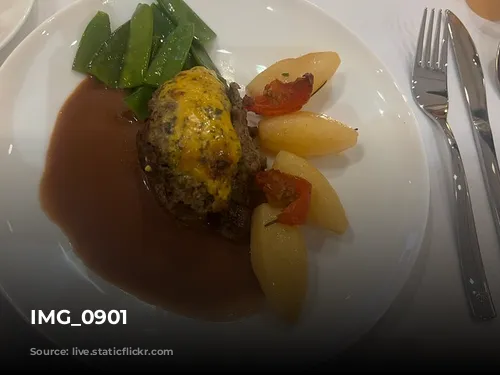
The Secrets of Airline Menus: Cycles and Freshness
We learned that menus are typically renewed every two to three years, with the current Vietnam Airlines menu slightly older due to the pandemic. To combat menu fatigue, airlines utilize a system of cycles, offering a rotation of four dishes over a period of three months. To ensure variety for frequent flyers, these cycles are not implemented in a linear sequence, creating a dynamic rotation of dishes.
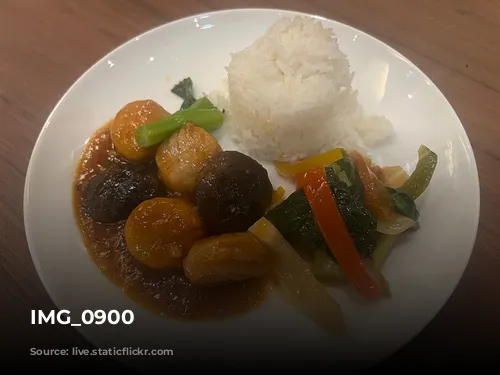
The Importance of Logistics: A Global Network
The logistics involved in delivering fresh meals to airlines around the world are complex and multifaceted. Servair, for example, boasts direct access to the runways at Roissy airport, allowing for swift responses to last-minute requests. However, at other airports, production centers may be located far from the catering facilities, introducing additional constraints and limiting flexibility. In some cases, airlines rely on hotels in locations lacking dedicated catering services.

Vietnam Airlines: A Commitment to Quality and Freshness
Vietnam Airlines stands out for its unwavering commitment to quality and freshness, imposing stringent requirements on its suppliers. This dedication is evident in the airline’s unwavering commitment to fresh meals, even in economy class, a rarity in the industry. This dedication to quality ensures a consistently enjoyable dining experience for passengers.
A Journey of Appreciation: The Hidden Effort Behind Every Meal
The event offered a powerful reminder that the enjoyment of a meal in flight is the culmination of a vast network of expertise, from the meticulous logistics involved in sourcing and preparing the dishes to the dedication of the cabin crew who transform ingredients into an enjoyable dining experience. Behind every plate, there’s a story of collaboration, expertise, and meticulous attention to detail, a story often overlooked but crucial to the overall journey.


